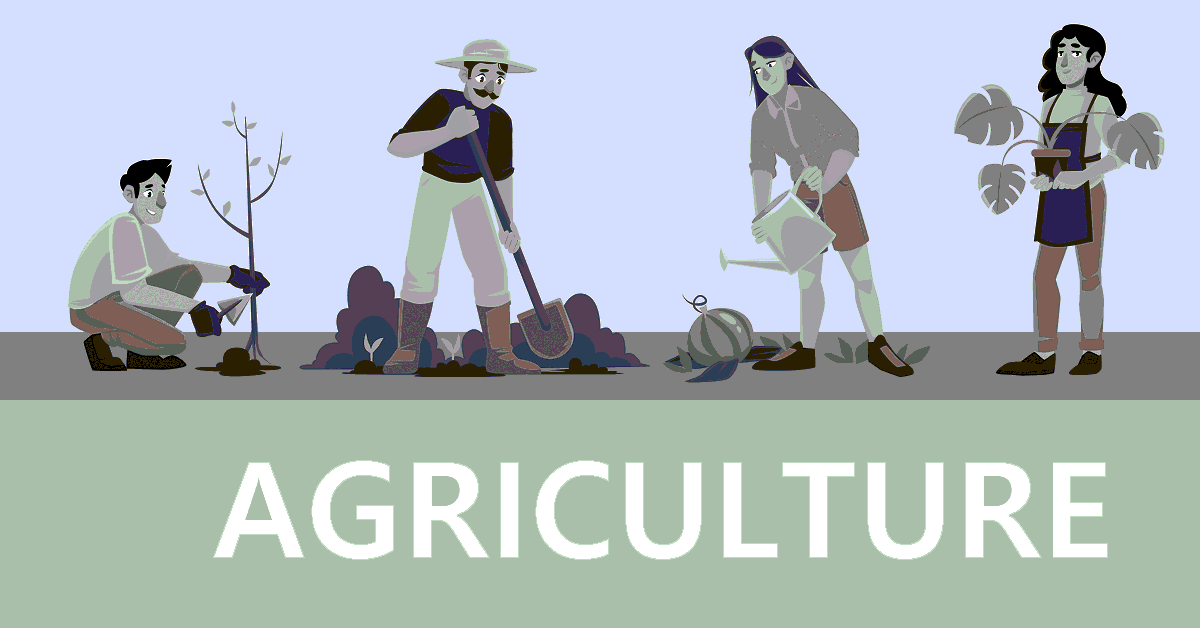
The evolution of society is a fascinating topic that has been studied by many anthropologists and historians. One of the most significant milestones in the development of human society is the transition from Hunting and Gathering to Agricultural Societies. In this article, we will explore the differences and similarities between Hunting and Gathering and Agricultural Societies and understand how they shaped early and modern civilizations.
Definition and Characteristics of Hunting and Gathering and Agricultural Societies
Hunting and Gathering Societies: Hunting and Gathering Societies are characterized by their dependence on foraging, fishing, and hunting for food. They are typically small, nomadic groups that move from place to place in search of food. Hunting and Gathering Societies have a close relationship with nature and a deep understanding of the local environment.
Agricultural Societies: Agricultural Societies, also known as Farming Societies or Agrarian Societies, are characterized by their dependence on agriculture for food. They are typically sedentary and have permanent settlements. Agricultural Societies have a complex social structure, and their economy is based on trade and the exchange of goods and services.
Comparison between Hunting and Gathering and Agricultural Societies
Cultural Differences: Hunting and Gathering Societies have a strong cultural connection to nature and are closely tied to their environment. Agricultural Societies have a more complex culture, with a greater emphasis on religion, art, and writing.
Economic Differences: The economy of Hunting and Gathering Societies is based on subsistence and the exchange of goods and services within the group. Agricultural Societies have a more complex economy, with a greater emphasis on trade and the exchange of goods and services with other societies.
Social Differences: Hunting and Gathering Societies are small and typically have a relatively egalitarian social structure. Agricultural Societies are larger and have a more complex social hierarchy, with a greater emphasis on social stratification and the accumulation of wealth.
Historical Timeline of the Transition from Hunting and Gathering to Agricultural Society
The transition from Hunting and Gathering to Agricultural Societies took place over thousands of years and was a gradual process. It is believed to have started in the Middle East around 10,000 BCE, and gradually spread to other parts of the world. This transition was driven by a number of factors, including population growth, technological innovations, and environmental changes.
Cultural, Social, and Economic Impact of Hunting and Gathering and Agricultural Societies
Hunting and Gathering Societies: Hunting and Gathering Societies played a crucial role in shaping early civilizations. They were the first human societies and provided the foundation for the development of early civilizations. Hunting and Gathering Societies were characterized by a deep understanding of their environment and a close relationship with nature.
Agricultural Societies: Agricultural Societies were the foundation of modern civilization. They were characterized by the development of complex social structures, trade networks, and the accumulation of wealth. Agricultural Societies played a crucial role in shaping modern society and have had a lasting impact on the world.
Role of Hunting and Gathering Societies in Shaping Early Civilization
Hunting and Gathering Societies played a crucial role in shaping early civilizations. They were the first human societies and provided the foundation for the development of early civilizations. Hunting and Gathering Societies were characterized by a deep understanding of their environment and a close relationship with nature. They also developed important technological innovations, such as the creation of fire and the development of stone tools.
Role of Agricultural Societies in Shaping Modern Society
Agricultural Societies played a crucial role in shaping modern society. They were the foundation of modern civilization and enabled the growth of cities and the development of complex political and economic systems. The development of agriculture allowed for the growth of surplus food supplies, which made it possible for a portion of the population to engage in non-farming activities such as trade, commerce, and government. This division of labor, in turn, led to the growth of cities, the rise of kingdoms and empires, and the development of writing, law, and religion.
One of the most famous examples of an agricultural society is ancient Sumer, which was located in what is now modern-day Iraq. This civilization is considered to be the birthplace of writing and the wheel and is often cited as the first civilization in human history. The Sumerians were able to develop a complex system of government, religion, and trade, which laid the foundation for the growth of later civilizations such as the Babylonians and the Assyrians.
Agricultural societies also enabled the growth of trade and commerce. As food surpluses grew, societies were able to trade goods and services with other societies. This led to the development of trade networks, the growth of markets, and the growth of commerce. Agricultural societies also played a crucial role in shaping the global economy, as they were the foundation of the world’s first empires and trading networks.
However, the transition to an agricultural society was not without its challenges. One of the main drawbacks of agricultural societies was the growth of social stratification, as the accumulation of wealth and resources led to the rise of elites and the formation of a class-based society. This, in turn, led to the growth of inequality and the emergence of social and political conflicts.
Conclusion
In conclusion, Hunting and Gathering and Agricultural Societies played a significant role in shaping early and modern civilizations. Hunting and Gathering Societies laid the foundation for the growth of early civilizations, while Agricultural Societies enabled the growth of cities, trade, and commerce. Both societies had their advantages and disadvantages, but they both played a crucial role in shaping human history and the evolution of society. Whether you are a student of history or anthropology, or simply someone interested in understanding the evolution of society, it is important to have a comprehensive understanding of the differences and similarities between Hunting and Gathering and Agricultural Societies and their historical significance in shaping the world we live in today.
Agricultural Science

